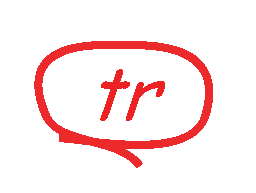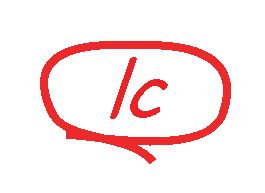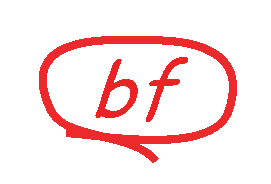We’re aware of how
difficult it is to write a book (since we also publish them), let alone
proofread and edit one (which, of course, we also do). An author — any author — simply gets too close to
the finished product and can no longer recognize basic mistakes. After
spending
weeks or months on a particular project, usually involving multiple
revisions, the
writer eventually sees what he or she intended, rather than
what’s
actually on the page. The human mind is perversely cooperative that way
— it
will supply a missing word for you, allowing you to continue reading
without being
bothered to notice the gap. A second set of eyes is needed for that.
Not to mention all the other
details of punctuation, grammar, and syntax, subject/verb agreement,
for
example. If, in the last sentence of the previous paragraph, you
thought the
verb should have been are, you’re
unfortunately mistaken — and you require a proofreader. (Although the
word eyes is indeed plural, it is
part of a
prepositional phrase acting as an adjective and modifying set. So, the correct usage wouldn’t be
“eyes are,” but “set is.”)
You can rely on us to know those
things. Precisely what that bit of sentence structure is called isn’t
important, but the fact that it’s a glaring error on the page is. Mistakes of this sort damage
otherwise fine writing, and an accumulation of them can relegate a
promising
manuscript to obscurity. That’s why you ought to hire us.
We edit both fiction and
nonfiction,
and we’re aware that different conventions apply, even to their subsets. The
straightforward approach of a “how-to”
book, which tries to reduce
technical
issues to their most fundamental terms, isn’t necessarily the same one
adopted
for a critique of modern politics, meant to persuade; and neither is
likely to
have quite the same tone as a history of social change during the Jazz
Age. A
memoir may be told in any manner that suits the narrator, even a
style similar to that of a novel — though it’s not one. Meanwhile, fiction can
come in all
shapes and sizes: first person or omniscient point of view; narrative
composed of
staccato Hemingway-inspired
sentences or long, complex ones like
those of Marcel Proust;
steam punk with a Victorian flavor or a laconic western; sultry modern
romance told in personal flashbacks or science fiction written in stream of
consciousness from an alien perspective — all
with more or less punctuation, largely at the artist’s discretion.
(Even punctuating
dialogue is a specialized skill.)
In any case, each writer’s
style is unique. We respect that and attempt to ensure that the
writer’s individual choice
of style — whatever it might be — is, at least, consistent. We also
strive to
clean up most of the unintended blunders along the way.
Unlike some other services,
we perform copyediting and proofreading simultaneously (and quite frankly can’t
understand why others don’t, since those functions overlap to the
extent of
being indistinguishable at times). The only disadvantage to this
technique is
that it doesn’t give an editing service an excuse to charge you twice
for
essentially the same work — but we can live with that if you can.
See Pricing
& Discounts for details.
In-Depth
Manuscript Editing
We also
offer in-depth editing for longer manuscripts
(approx. 2,500 words to book length), which
involves structural analysis, developmental criticism,
etc. Each of these projects, however, is unique and must be quoted
accordingly.
We’ll examine the manuscript and then provide a brief analysis (at no
charge to a
first-time client), along with — if
applicable — an estimate for developmental
editing.
This initial analysis is strictly for the client’s benefit and intended
to
appraise whether the writing is suitable for such editing. If the
manuscript is
already fleshed out, well written,
and structurally sound, there is no
need.
By contrast, if it is so intrinsically flawed that no amount of deep editing
will
significantly improve it, we won’t accept the job. In either case, it
would be unscrupulous
to take the client’s money (although there are plenty of other services
who
will). If, however, the manuscript is fundamentally well conceived,
has
genuine
potential, but could be improved by in-depth
editing, we’ll quote a
price we
consider fair for that particular project. Apart from this, and
regardless of
our opinion of it, any manuscript may be submitted through regular
channels for
our basic editing service. These two functions are separate, and our
basic
editing service is not included as
part of this structural analysis.
Note: The
fact that we edit your manuscript implies no guarantee whatsoever of
its
eventual publication — and certainly not by us. You must have noticed, at this point in your
career, that getting your work into print is a difficult business, and success doesn’t
always favor the most talented. What’s worse, there are
many
“publishers” who prey upon unpublished writers. One of the simplest
methods they employ is to string authors along with marginal encouragement, convincing them that their
work might be acceptable for
publication — at a price, of course — if it is first “edited” by their affiliate for a rather large fee. Then they’d be willing to charge again for publishing it. To be as blunt as possible, this kind of “editing” is a
scam (not
to mention that it often costs far more than a reputable service
would
charge). Do yourself a favor and don’t fall for it. Let’s be perfectly
clear up
front. Our business does have a publishing branch — but it is totally
discrete
from our editing service. We will not — as a matter of principle —
charge an
author to edit work that we later decide to publish; nor will we
publish
anything we have charged a fee to edit. If your work is already so
well polished you wish to
submit it as is
to our publishing arm, send it there.
When it isn’t, send it here, accept
the modest charge for our help, and let us assist you. If we run across
something genuinely outstanding in the process, we’ll encourage the author to
seek
publication — just not with us, no
matter how much we might regret it. In our organization,
this is a
strict policy. Integrity matters. That’s why you can trust us.


























